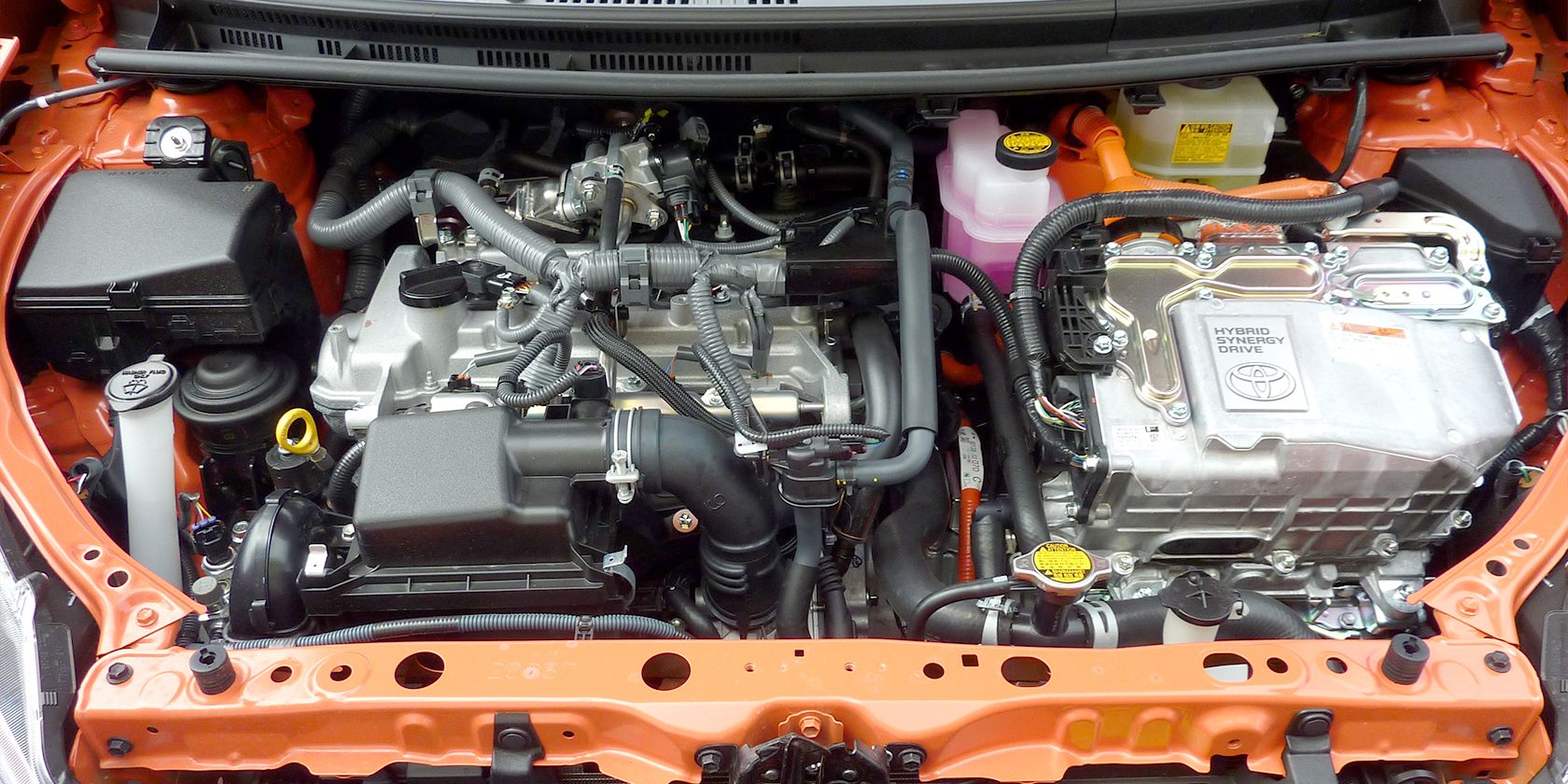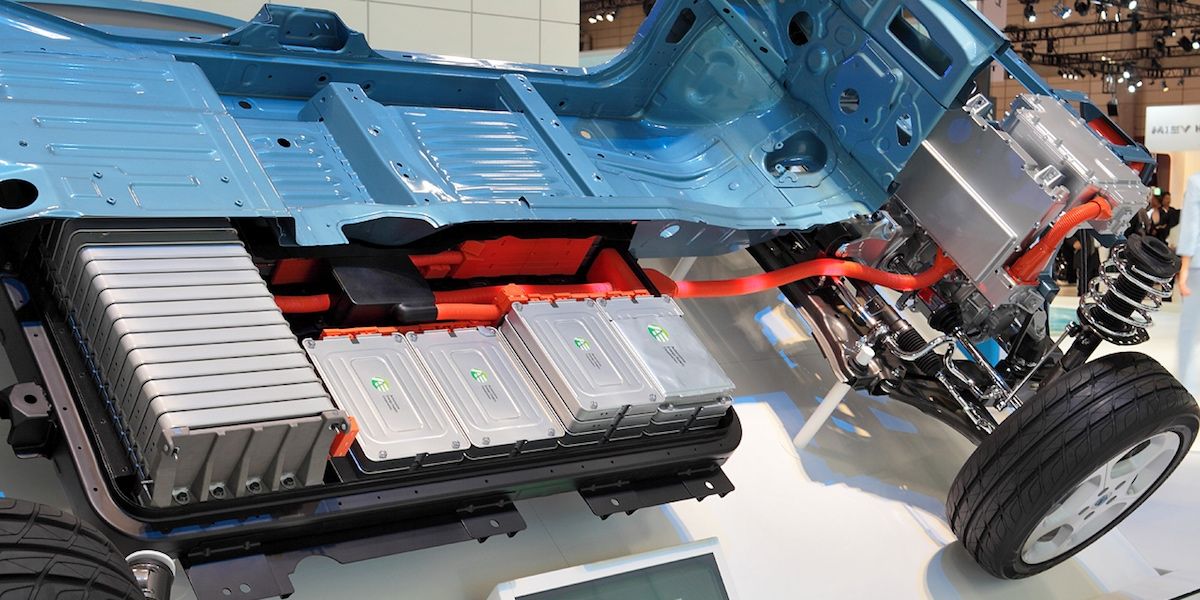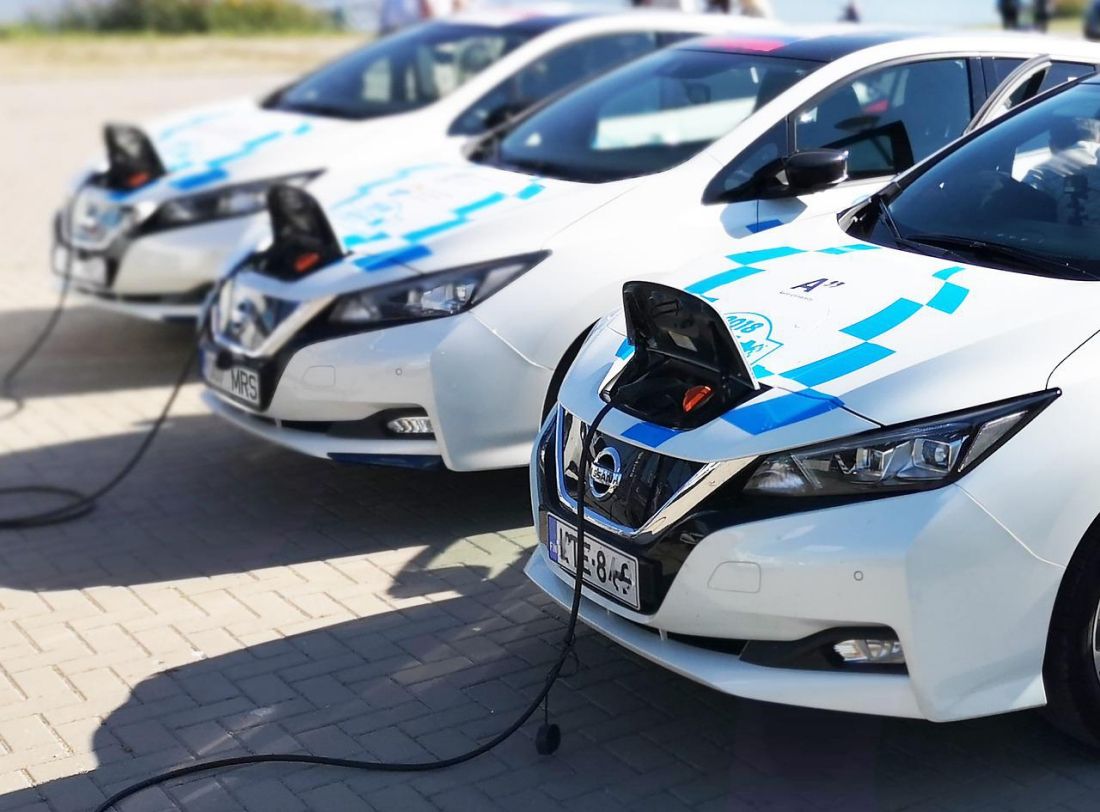Electric vehicles are easier and cheaper to maintain than internal combustion cars. This is true since all the complex moving parts of an internal combustion engine are eliminated from the EV equation. But do electric vehicles require coolant just like conventional gas-powered cars?
EV batteries need to be cooled in some fashion, so this is a great question. If you're curious to know if electric vehicles use coolant and if it needs to be changed periodically, you're in the right place.
What Is Coolant Used for in a Traditional Vehicle?
In an ICE vehicle, coolant is used as the main medium to transport heat away from a vehicle's engine and other internal components. Coolant is super important in these vehicles because it helps keep the engine at an appropriate operating temperature. This is no easy task, especially considering that gasoline engines waste tons of energy as heat. In addition, coolants have much higher boiling points than water, which is exactly what you want in an internal combustion vehicle that's producing insane amounts of heat.
The glycol-based coolant also has a lower freezing point than water, which is ideal for extreme winters, where water would literally freeze inside the cooling passages of the vehicle. If water ends up freezing inside your engine, the damage could be catastrophic as the water begins its transformation into a solid. This is why it's a wise move to use the proper coolant for your vehicle during the wintertime. However, it must be noted coolant isn't only for cold climates. Many think running a glycol-based coolant is unnecessary in warm places because there's no risk of the liquid freezing.
This is a huge mistake, and many people end up using tap water inside their engine's cooling system, which ultimately clogs the components due to the impurities in the water. Coolants also have anti-corrosive properties to prevent the corrosion of the different metals they interact with. On the other hand, tap water does not have any of these anti-corrosive additives. If you're serious about protecting the life of your engine, you must consider coolant changes as an essential part of your vehicle's routine maintenance items.
Do EVs Need Coolant?
Electric vehicles also produce heat, but the main component that needs cooling in an EV is the battery. Internal combustion engines produce a lot more heat than EVs do. But, due to the importance of keeping EV batteries operating at a safe temperature, coolant is also important for electric vehicles. Not all electric vehicles use coolant, though. Some EVs rely on air cooling, which many consider inferior to liquid cooling methods.
The Nissan Leaf uses air cooling, many of which are still on the road and functioning well. But it's undeniable that liquid cooling is more effective at cooling an EV battery in extreme conditions, especially in very hot climates. This is just physics; water is a superior heat conductor to air. So, if you're considering getting an EV and live in a super hot climate, finding a liquid-cooled vehicle might be your best bet. Electric vehicles with water cooling use a similar method to ICE cars to cool their batteries.
Internal combustion engines use a series of pipes within the engine to move coolant, with the help of a pump, through the hot areas of the engine. This hot coolant is then channeled to the radiator, where a fan is used to cool down the high-temperature liquid. This helps to keep the engine from experiencing catastrophic failure from excess heat. EVs also require cooling methods to keep their batteries from experiencing premature failure. Actually, a very similar technique is used to cool an EV's battery, which involves the use of cooling pipes around the battery.
The coolant flows through these pipes and helps to cool down the battery in much the same way as in a traditional car, where the coolant is eventually sent to a radiator. This is called indirect cooling in an EV. There are other methods as well, such as direct cooling. Direct cooling involves soaking the actual cells of the battery in coolant, but this coolant needs to be an ultra-low electric conductor. Unfortunately, direct cooling isn't found in production vehicles at the moment. Perhaps direct cooling is the future of electric vehicle cooling methods, but for the time being, indirect cooling is the most popular option.
What Type of Coolant Does an EV Use?
Most electric vehicles, just like internal combustion cars, use glycol-based coolants. Traditional gas-powered vehicles produce lots of waste heat, so the coolant suffers a lot of stress when it's cycled through an engine bay. Therefore, the coolant used in your EV must be a low-conductivity coolant. There are specially made low conductivity coolants sold specifically for EVs, preventing possibly catastrophic events.
Liquid cooling systems are superior to air cooling systems in terms of heat transfer, but leaks may develop over time. If the coolant starts leaking into the battery's cells, and the liquid is highly conductive, this is a recipe for an absolute disaster. Therefore, it's super important that you make sure that your EVs coolant is the correct one the manufacturer intended because other types of coolant might not have the adequate conductivity protection required for cooling duties in electric vehicles.
Does an EV's Coolant Need to Be Changed?
It depends on the manufacturer, but Tesla states in its Model Y owner's manual that there shouldn't be any need to change the coolant during the vehicle's lifetime. Tesla is also adamant that the owner shouldn't try to top off the coolant themselves, which seems in line with their perceived philosophy of being allergic to letting owners work on their own vehicles. Still, removing regular coolant changes from the equation can also be considered another advantage of owning an EV.
Under no circumstances should you remove the filler cap and/or add coolant. If the touchscreen warns you that the fluid level is low, contact Tesla immediately.
The coolant in an EV suffers less exposure to extreme heat, so it makes sense that the coolant lasts longer in an electric vehicle. Regardless, changing the coolant periodically won't harm the vehicle. In fact, it will ensure that the coolant is in great condition and can continue to cool the battery efficiently. Adding a regular coolant flush to your EV's maintenance routine is a great way to take care of your EV's battery and keep it running like new.
EV Coolant Is Essential in Protecting Battery Longevity
The proper electric vehicle coolant will ensure that your EV's battery is functioning at an adequate temperature and is protected in the event of unforeseen leaks. Although some manufacturers say that the fluid should last the life of the vehicle, verifying the coolant's health from time to time is a great idea. An electric vehicle's cooling system is its main defense against premature battery degradation.





